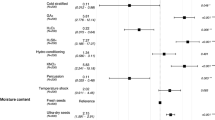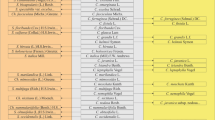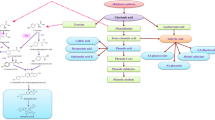Abstract
SEED dormancy of the type shown by sour cherry (Prunus cerasus L.) and hazel (Corylus avellana L.) appears to be a widespread phenomenon. Before such seeds can germinate at room temperature they have to undergo a process of after-ripening at a low temperature (for example, 5° C) in the presence of an adequate supply of moisture. Olney and Pollock have demonstrated that during after-ripening in sour cherry seeds there is an increase in the concentration of phosphorus, mainly in the nucleotide and nucleic acid-containing fractions, in the cells of the potentially growing organs of the seed1. They have suggested that cherry seed dormancy may be associated with a block in the phosphate metabolism of the cells, although they qualify their conclusion by stressing the difficulty of distinguishing the primary reaction responsible for the breaking of dormancy from the many secondary reactions.
This is a preview of subscription content, access via your institution
Access options
Subscribe to this journal
Receive 51 print issues and online access
$199.00 per year
only $3.90 per issue
Buy this article
- Purchase on Springer Link
- Instant access to full article PDF
Prices may be subject to local taxes which are calculated during checkout
Similar content being viewed by others
References
Olney, H. O., and Pollock, B. M., Plant Physiol., 35, 970 (1960).
Author information
Authors and Affiliations
Rights and permissions
About this article
Cite this article
BRADBEER, J., FLOYD, V. Nucleotide Synthesis in Hazel Seeds during After-ripening. Nature 201, 99–100 (1964). https://doi.org/10.1038/201099b0
Issue Date:
DOI: https://doi.org/10.1038/201099b0
Comments
By submitting a comment you agree to abide by our Terms and Community Guidelines. If you find something abusive or that does not comply with our terms or guidelines please flag it as inappropriate.



